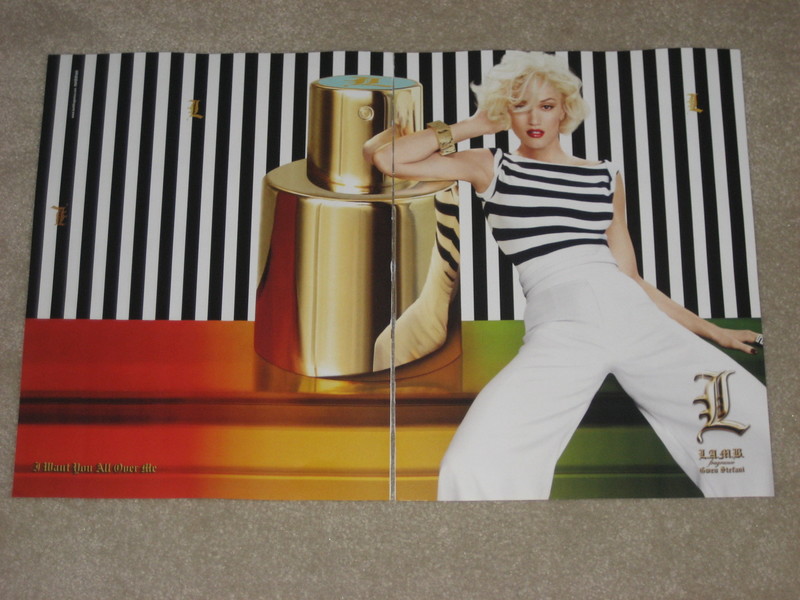I was re-reading some of the stories in
The October Country last night, (A collection of Ray Bradbury's short stories,) and on impulse flipped to the front and scanned the forward. And paused. And went to the beginning of the forward and read it all the way through. I had read it before, a long time ago, and probably read passages of it to Leeshee out loud, but it's been a while. It is one of the greatest forwards I think I have ever read, at least as far as its ability to communicate the purpose and importance of the collection, the importance of an author to find their own voice, Bradbury's own writing style and habits, and how the ideas for his stories came to him. It's worth re-reading over and over, and therefore needs to be included in this blog. Here it is:
:: "May I Die Before My Voices" (From His Forward to
The October Country, ©1996 by Ballantine Books) ::
Now, what in the blazes does the above title mean?
It means voices have been talking to me on early morns since I was about 22 or 23. I call them my Theater of Morning Voices, and I lie quietly and let them speak in the echochamber between my ears. At a certain moment when the voices are raised high in argument or passionate deliberation like rapiers' ends, I jump up (slowly) and get to my typewriter before the echoes die. By noon I have finished another story, or poem, or an act of a play, or a new chapter of a novel.
It was not always thus.
When I was 12 and began to write, I was busy loving and imitating Edgar Rice Burrough's
Tarzan, L. Frank Baum's
Wizard, or Jules Verne's
Nemo; if the morning voices spoke, they went unheard.
So the first 10 of my writing years were dumb stuff, hardly worth filing away as proof of my blind attempts to be something I could never be. Imitation was my way of life, so true creation couldn't raise its fine head.
To put it another way, there was an Undiscovered Country behind my medulla oblongata, but I never traveled there. Shakespeare's Undiscovered Country was Death itself. Mine, when I finaly charted it, led by my voices, was the territory of ideas, concepts, notions, conceits, all immensely personal, nowhere to be found in Burroughs, Baum, and Verne. I had to learn to reject them as models, keep them as loves, yes, but stop trying to live like John Carter, Tik-Tok, or the Nautilus's mad captain.
I came close to a breakthrough in high school. I remembered a dark place in my hometown and write a story titled "The Ravine," filled with terror and possible death. I was still too young to realize I had written my first original tale, something fresh from my nerve ending and ganglion. I put that story aside and went back to the road of Oz and Barsoom, which meant another 5 or 6 years delay in becoming myself.
I fell into becoming halfway excellent by the sheerest of word-association accidents. When I was 22, I began to make lists of nouns to try to jar my subconscious into sitting up and beg for delivery. It didn't work until one hot noon, when, sitting in the sun with my portable typewriter, I wrote this: "The Lake." And suddenly I recalled the summer when I was 7 and a blond girl companion busy building a sand castle ran into the lake and never came back. Death and drowning, drowning and death, what a mystery!
Swiftly, I set about remembering that day with my typewriter. By late afternoon, "The Lake" was finished and I was in tears. I knew that at long last, after years of dumb obfuscation, I had turned inward, discovered whatever might be original in my head, and caught it on paper. "The Lake," published in
Wierd Tales some months later, has never been out of print and has been anthologized dozens of times.
From that day on I began to pay attention the the right, left, or perhaps lop side of my brain. I found I could provoke memories of odd notions or strange metaphors by listing my favorite nouns, though I didn't know
why they were favorites. Some of my first lists ran like this:
THE NIGHT, THE ATTIC, THE RAVINE, DANDELIONS, MIDNIGHT TRAIN WHISTLES, TENNIS SHOES, BASEMENTS, FRONT PORCHES, CAROUSELS, DAWN ARRIVAL OF CIRCUSES.
Then, over a period of months or years, I grabbed those words, turned them over, filed them behind my face, and waited for my new dawn voices to give them shape, rouse them, and drive me to my Underwood.
I soon learned that while I had imagined at age 12, 16, 18, and 20 that I wanted to be a science fiction writer, I was for better or worse the illegitimate son of the Opera Phantom, Dracula, and the Bat. My proper home was Usher, my aunts and uncles descended from Poe. I wrote and sold most of the stories in
The October Country to
Wierd Tales in the following years for a half cent or a penny a word, fighting off the editors' warnings that my stories were not really wierd or ghost stories. Could I write something more, ah, traditonal?
I could not and sent them "The Skeleton" and "The Crowd."
I blundered into "Skeleton" through the kind servicces of my family doctor, who, when I complained of a strangely sore larynx, said, "That's all perfectly normal. You've just never bothered to feel the tissues, muscles, or tendons in your neck or, for that matter, your body. Consider the medulla oblongata."
Consider the medulla oblongata! Migawd, I could hardly pronounce it! I went home feeling my bones—my kneecaps, my floating ribs, my elbows, all those hidden gothic symbols of darkness—and wrote "Skeleton." It's been around ever since.
About the same time my morning voices turned nightmare, I recalled a car crash I had witnessed when I was 15 in which 5 people had been torn and killed. A crowd had appeared from nowhere, it seemed, in a few moments. The accident had happened outside the gates of a local cemetary. I wondered
if. . . ? and wrote "The Crowd."
For some years I appeared in almost every issue of
Wierd Tales, learning from these intuitive stories how I might write science fiction if I ever dared go back to that genre. The result was, of course,
The Martain Chronicles, which is 5 percent science fiction and 95 percent fantasy. Purists have hated me since, for I dared put an atmosphere on airless Mars so that my eccentrics could walk around, breathe, and live without all those d***** airpacks.
"Homecoming" derived from my grandparents' next door house on those Halloweens when, as a boy, I rode out to the country with my Aunt Neva to bring home corn shocks and pumpkins to redecorate the house and stashed myself in the attic, made up as a wax-nosed, wart-chinned witch, to terrify relatives and neighbors. The names of the Homecoming Family are the names of my aunts and uncles. "Uncle Einar" is the name of my favorite loud-singing Swedish uncle, who was so much loved, I gifted him with wings and let him soar.
"The Next in Line," Finally, resulted from my being foolish enough to descend into the graveyard catacombs in Guanajuato, Mexico. I walked between twin rows of mummies, men, women, and babies wired to the women's wrists, evicted from their graves for nonpayment of rent and stashed in the tomb hall, stricken and silently raving, against the walls. Once in the catacomb, I found it almost impossible to get the h*** out. The mummies pursued me until I buried them in "The Next in Line."
So it went, story after story, once I opened the valves and acted out what Gerald Manley Hopkins once said: "What I do is
me, for
that I came." I tried to
stay me from that time on.
The October Couuntry was first published under the title
Dark Carnival. The title story was not finished in time to go into the book. It hung around, collected midnights and funeral trains, and was finally published as a novel,
Something Wicked This Way Comes, in 1962.
Which brings us the long way around again to the title of this foreward: "May I Die Before My Voices." My voices are still speaking, and I am still listening and taking their wild advice. If some morning in the future I wake and there is silence, I'll know my life is over. With luck, on my last day, the voices will still be busy and I wil still be happy.
Ray Bradbury
Los Angeles, California
April 24, 1996
::
Simply marvelous, isn't it? I love his last paragraph a lot; I sometimes worry that with our own stuff, because it takes us so long to do anything with the stories we create, that we will die before all of those stories are told. It's one of my greatest fears, because it we don't tell them, who will? But I love the calming voice of Bradbury, saying that instead of fearing those voices not being told, to celebrate them, be happy that they are there and hope that, even on your deathbed, new stories are erupting from the inner recesses of your mind. Never wish for those voices to stop; and more importatnly, learn to hear the voices that are uniquely yours alone.
I have always loved reading Bradbury. His stories are sheer pleasure to read, and not even for the stories he weaves, though those are masterful as well. It's because of the way he uses words to evoke senses and convey emotions; the sounds, sights, and smells of the story open up that world in a dazzling way, and present a new way of seeing the world. He is a master of Imagery.
He is a master of the macabre as well.
Something Wicked This Way Comes is my favorite Bradbury novel; I hate horror stories for the most part (mostly because my mind is too imaginative and takes horror visuals to frightening tangents), but this is one of the few that I adore, that I love freaking me out when I read it late at night. The very first short story of his I remember reading was
Homecoming. It was in the back of "Monster Museum," one of those Hitchcock story collections that was perpetually sitting around our house. It was my fave story of the whole bunch; a wonderful new look on a family of mosters as seen through the eyes of the wonderful, flawed Timothy. I read it over and over, and it wasn't until a few years ago I discovered, to my joy, that Bradbury must have loved the characters in that story as much as I did, for he did several short stories about that family, which I happily now own.
(And I'll frankly admit that, because I love Timothy so much, he inspired a similar character in one of our own stories. She is completely different, of course, yet echoes a lot of similar frustrations and themes as she finds her way in the world. And in her creation she opened up a whole new world of characters and subplots for that story that now I cannot imagine being excluded. It is a richer story for them being in there, and for that spark I am deeply indebted to Bradbury.)
:: Bradbury on Fahrenheit 451 and the Importance of Story ::
Andy Inhatko on the This Week in Media podcast (#57) had
a story about Bradbury from LA Weekly, and how Bradbury says that what we've been taught about Fahrenheit 451—that's it about the government limiting free speech—is all wrong. But what Inhatko said after that relates more to writing, so I'm going to talk more about that. He goes on to say that according to Bradbury, story is a based around a place. If you make the interesting by putting good things to eat and fun things to do, people are going to want to stay. If you don't have that, people will go somewhere else. His stories include that: Martian Chronicles is about place, familiar things, home. Something Wicked is about the familiar ferris wheel and fair that comes to town.
It brings up interesting ideas about writing—that every story, no matter alien its setting, will have some aspects that are familiar and comforting. Or inversely, that you can use the familiar and comforting to emphasize the strange and surreal. I also like the idea of needing stuff to eat and do, to keep the reader interested; good character/setting and plots? Or maybe I am just misinterpreting Bradbury too. ;)
Like Andy, I also got to met Bradbury in person! Well, if by meet you mean at a book signing after he came and lectured in our town. (Yes, our little town; I have no idea why he came but am so happy he did.) I brought Something Wicked, of course, for him to sign, and we were asked to just give him our book and have him sign it, no conversations or anything. But I was brave that day, and when it was my turn I asked if I could shake his hand! And he smiled up at me, reached his arm across the table, and let me shake his hand! I was so thrilled and stunned, I think I floated away from the table. It does the heart good to know that, according to the LA Weekly article, he is still hanging in there and writing everyday.
For more Bradbury fun, the LA Weekly article links to Bradbury's web site, where he has
video clips up talking about his home, his stuff, his working area, and his stories. Really good stuff.
:: Don't Talk, Write ::
And lastly, from
this blog, a good quote by someone who met Bradbury:
"“when I went up to talk to Bradbury later about a story I was writing, he held up his hand and said, ‘Stop! Shut up! Don’t talk about it! Go home and write that! If you talk about it, you’ll never write it.’”
Really good advice, if you ask me. Leeshee and I need to do less talking/preparing and more writing.
::
Wow, another super-long post; I need to learn how to do cuts like the ones you can do at LJ. But worth the length, I hope. And happy 4th tomorrow everyone!
Labels: Ray Bradbury, Writing Manga









